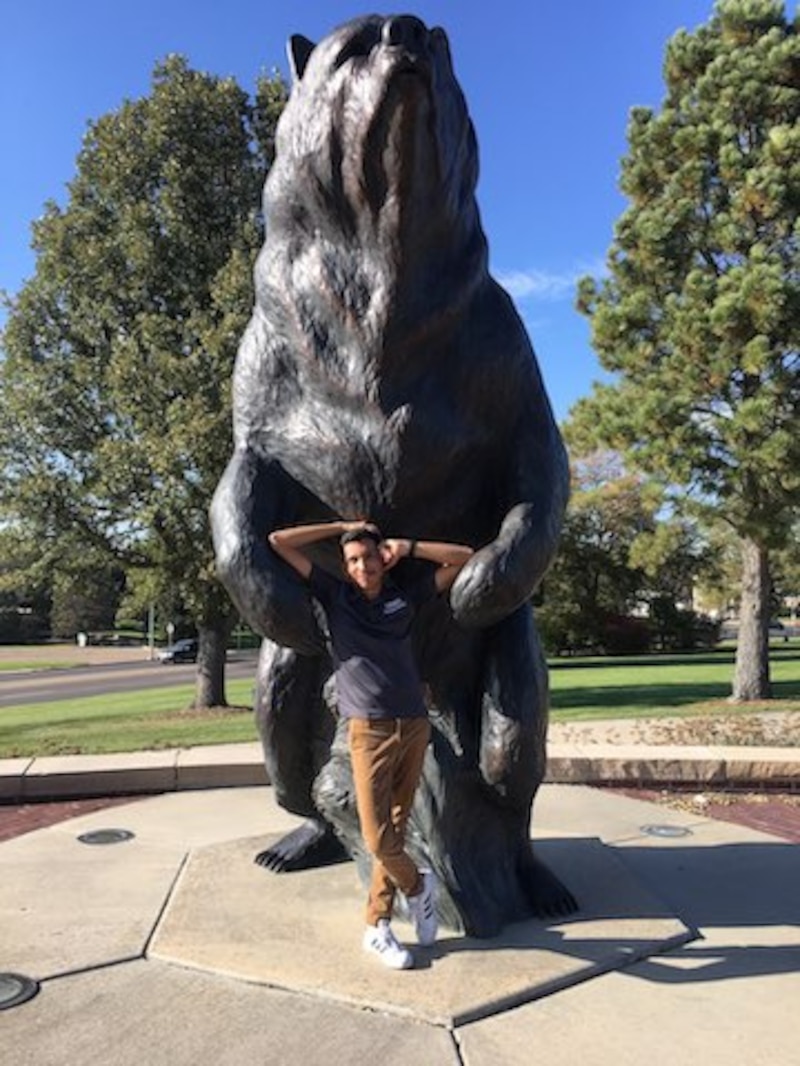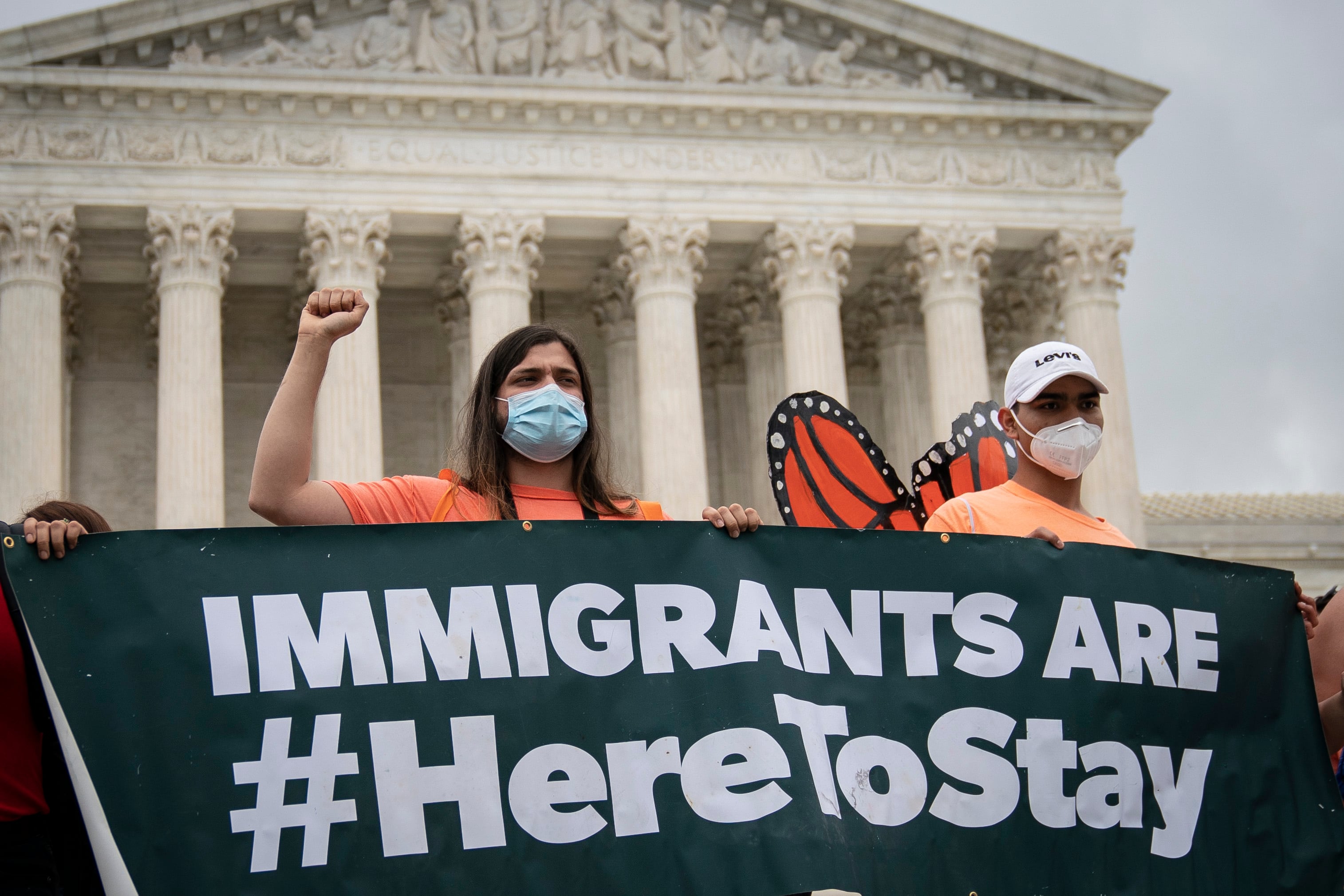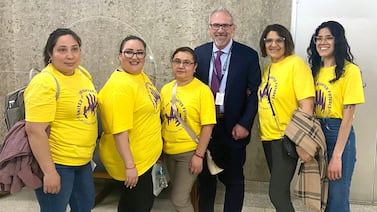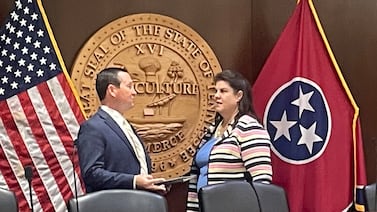Jose Hernandez was 99% sure the Supreme Court would allow the Trump administration to end the Obama-era Deferred Action for Childhood Arrivals program that protects more than 15,000 Colorado undocumented immigrants like himself.
Instead, on Thursday the high court barred President Donald Trump’s administration from ending DACA, which allows almost 700,000 immigrants brought to the country illegally as children to remain in the United States, go to school, and work.
“I was already starting to look at my options,” said Hernandez, 22, who has lived in the U.S. since the age of 2. “What does it look like if I have to go to Mexico? What is my life going to look like? How am I going to navigate a whole new culture and society?”
The Supreme Court decision came as a welcome surprise for Colorado DACA recipients. Lawmakers and colleges across the state also celebrated the decision and called on Congress to put in place permanent protections and a pathway to citizenship for the young adults.
While the Supreme Court decision preserves the program for now, the Trump administration controls its fate. The court said the administration can end the program if it follows the proper process. The ruling said the court would send the matter to the Department of Homeland Security “so that it may consider the problem anew.”
The ruling does not order the administration to accept new applications for the program.
Denver Mayor Michael Hancock said in a statement he will continue to stand behind the approximately 9,000 DACA recipients who call the city home.
Colorado was one of more than 20 states to file lawsuits to stop the administration’s decision. And Denver joined many other cities across the country to challenge the decision.
In the statement, Hancock also called on Congress to find a solution for DACA recipients.
“Our Dreamers are some of the most determined and courageous people in the country,” Hancock said. “They are an integral part of our workforce, they are teachers, students and members of our military. And even now they remain determined and continue to make contributions to our communities through their courage, their belief and their hope — even as they live in uncertainty. This ruling is a victory for decency.”
The decision, Hernandez said, allows him to keep planning his future. He wants to work at a college or university someday.
Hernandez didn’t find out he wasn’t a citizen until he was in middle school, and the 2012 program gave him hope. For many other students, the program has opened up doors to college and careers that would have been otherwise inaccessible. DACA allows Colorado recipients to be eligible for in-state tuition.
But Trump’s 2017 move to end the program created uncertainty for Hernandez and fellow recipients.
“Knowing that everything I’ve worked for up until this point could have just been for nothing, I think it made me feel worthless,” Hernandez said.
Hernandez, who graduated in the spring from the University of Northern Colorado, will begin a master’s program in student affairs in higher education at Colorado State University in the fall.

“I woke up today and said, ‘Thank God there’s some protections still in place,’ “ he said. “But it’s bittersweet because you know there’s still a lot of folks who can’t apply for DACA.”
The fight now turns to permanent protections for the students and workers in the program.
The Colorado Latino and Black Caucuses today released a joint statement urging Congress to quickly pass legislation to establish new protections and a pathway to citizenship. The statement also said the group shouldn’t be used as a bargaining chip in immigration reform.
Many Colorado colleges also celebrated the decision, with numerous issuing statements of support.
Colorado Mountain College President and CEO Carrie Besnette Hauser said the decision closes one battle, but more work is needed to secure a long-term solution for those with DACA status.
And Colorado State University President Joyce McConnell said in a statement that undocumented and immigrant students are, and will continue to be, valued members of the school’s community
“You have our unwavering support as you pursue your academic endeavors and we will assure you have the services and resources you may need to realize your dreams,” McConnell said.








